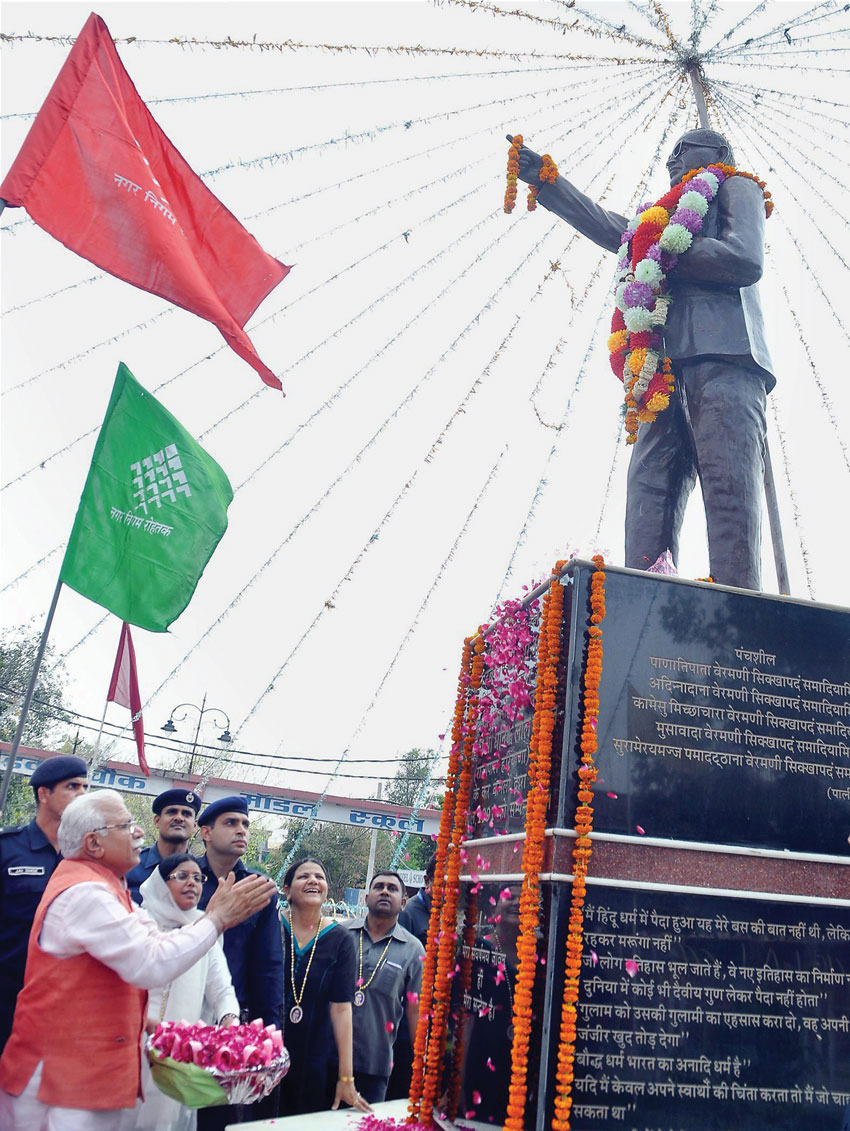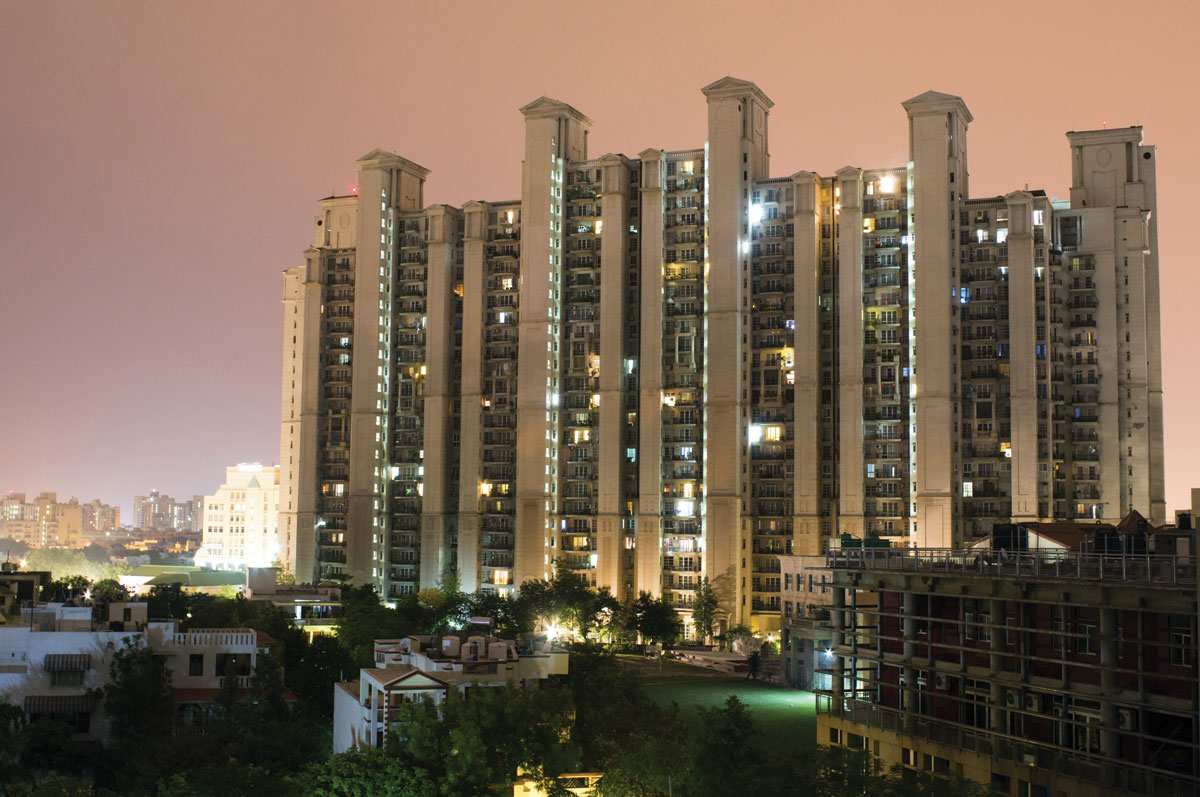GURGAON, NOW GURUGRAM
A high rise apartment building in Gurgaon.
On April 12, the authorities issued orders for renaming Gurgaon district as Gurugram and Mewat district as Nuh on purported demands by a few social groups, writes Priyanka Bhardwaj. (@siliconeer, #siliconeer, #india, #gurgaon, #gurugram)
In the famed tragic play of lyrical tale of “star-cross’d” lovers Romeo and Juliet, William Shakespeare’s Juliet had said,
“What’s in a name?
That which we call a rose,
By any other name would smell as sweet.”
It’s been two weeks since the state government of Haryana, a Bharatiya Janata Party-led state, has decided to rename the Millennium City in the National Capital Region, Gurgaon as Gurugram.
Taken aback, a debate and a sort of dread over the name have engulfed the citizenry with several online petitions and social media fronts challenging the decision.
Opposition comes from the corporate quarters that fear that the name-change might dilute the brand image of the global city.
A city with 279 of the 500 Fortune companies’ headquartered in Gurgaon, oh sorry! Gurugram, other multinational firms, big, medium and small businesses are confused the looming logistical nightmare of name change.
For the name Gurgaon spelt swanky glass exterior-mall, top-end five star apartment complexes and state of the art offices reflecting a global life or a mirage, as one would like to reckon with, in an Indian setting of developing milieu.
So what do we have—multiple petitions against the name on Change.org — an online platform to raise social issues, Facebook pages and via Twitter hashtags.
“Support Gurgaon – We’re against name change to Gurugram” runs a community page on Facebook with about 8,000 likes and mostly arguing why the Chief Minister, M.L. Khattar and his government did not seek to consult the public before embarking on the rechristening journey and how will the change impact the real development of the city.
Bollywood actor Randeep Hooda, who hails from Haryana, revealed his disappointment in a tweet that in the “khari” dialect “gaon” means a village and there is no word as “gram” meaning a village. (In Bengali dialect, it is).
However in keeping with the rising intolerance Hooda faced some severe flak such as being called “anti-national” from supporters and politicians who endorse the name change.
People wonder if this is some form of a diversionary tactics to keep public engaged in non-issues when progress on real fronts – illiteracy, infrastructure, health, employment, taxes, law and order, hunger and water – are lacking or missing.

But the defenders of the name-change such as Rishi Agarwal of Gurugram Gaurav Sanstha opine, “Gurgaon became a global brand not because of the name but because of other reasons that helped the city grow. Correcting a mistake does not mean going in the wrong direction.”
To more like him the name change is just a necessary correction and going back to the original name.
They put forth the example of other cities that have also undergone name changes – Mumbai, Chennai, Kolkata, Bengaluru, Thiruvanathapuram, from Bombay, Madras, Calcutta, Bangalore, and Trivandrum.
One would need to understand that while names of all these cities were Anglicized versions of the original names in respective local languages, introduced by colonial rulers for ease in pronunciation.
And there was a sizeable population that was using the original names and on the demand for the same was the going back to original name decided.
Of course there was no denting of the brand image of these cities though the changes in names were neither considered a clever nor a courageous move.
But then it did set a trend of sorts, however, not imaginable in the case of Gurgaon into Gurugram.
The historical evidence is a mention in a 200 year old local gazette about an oral tradition that Guru Dronacharya taught the Kauravas and Pandavas of the epic “Mahabharata” fame and that in return for his teaching services he and his descendants were awarded the land.
Of some interest is also the Guru’s promise to favored Pandava Prince Arjuna that he will be the best archer in the world and thus asked for the thumb of forest Prince Eklavya as “Gurudakshina” (an acknowledgement of respect or repayment of services of teacher by his student).
While it may not diminish the image of the city it is most likely to extend government and public costs and create confusion for some time without adding actually invoking Hinduism as some ardent supporters would prefer to believe.
On an interesting note it is not just the ‘aam aadmi’ (common man) and ‘aurat’ (woman) bewildered and taking polar sides on the issue but also astrologers.
Bejan Daruwala, among India’s most famous astrologers, calls the name Gurugram “unpropitious” but Bhavesh Patni of GaneshSpeaks comments that the name change will raise the spiritual leanings of the residents.
As matters stand, residents may have to suffice with quibbling over the “gyan” (knowledge) surrounding this modern christening of an ancient region and with living or and working from Gurugram and not Gurgaon!


